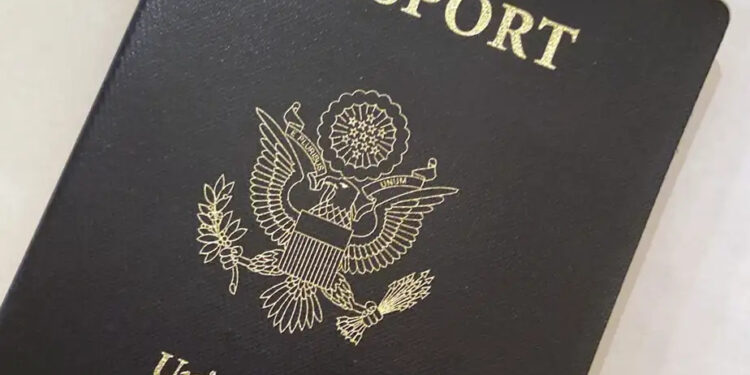(Boston) A federal judge prevented the Trump administration on Friday from ending citizenship by soil law for parents of parents illegally residing in the United States. This is the third judicial decision blocking this ordinance on a national level since a key decision of the Supreme Court in June.
The district judge of Massachusetts Leo Sorokin, associating with another district court and a college of appeal judges, estimated that a national injunction granted to more than a dozen states remain in force under an exception to the decision of the Supreme Court. This decision limited the power of the judges of the lower courts to order injunctions nationwide.
The States argued that Donald Trump’s order on soil law is manifestly unconstitutional and threatens millions of dollars for health insurance services linked to citizenship. The case should be quickly returned to the country’s highest court.
The New Jersey Attorney General, Matthew Platkin, who helped to take legal action before the Sorokin judge, said in a statement to be “delighted that the district court again prohibited the entry into force, or the decree of President Trump on citizenship, manifestly unconstitutional, relating to soil law. »»
“Babies born in the United States are American, as they have always been in the history of our nation,” he added. The president cannot modify this legal rule from a feather trait. »»
Government lawyers had argued that Sorokin should restrict the scope of its previous decision granting a preliminary injunction, saying that it should be “adapted to the alleged financial damage to states”.
Judge Sorokin considered that an disparate approach to the decree on soil law would not protect states, in particular because a significant number of people move from one state to another. He also castigated the Trump administration, saying that it had not explained the functioning of a more restrictive injunction.
“In other words, they have never addressed what makes a proposal feasible or applicable, or how defendants could implement it without imposing heavy administrative or financial charges on the complainants, or how it harmonizes with other relevant federal laws,” wrote the judge. In reality, they qualified these questions as inapplicable to the task that the Court is currently undertaking. The opinion of defendants in this regard defies both law and logic. »»
The Massachusetts judge acknowledged that his order would not be the last word on soil law.
Donald Trump and his government “are entitled to continue their interpretation of the fourteenth amendment, and there is no doubt that the Supreme Court will decide the question as a last resort, wrote Sorokin. But in the meantime, for the purpose of this trial, the decree is unconstitutional. »»
The administration has not yet called upon any of the recent court decisions. The president’s attempts to refuse citizenship to children born to parents illegally or temporarily in the United States will remain blocked until the Supreme Court decides otherwise.
An email asking for a response from the White House to this decision was sent on Friday.
A federal judge of New Hampshire made a decision earlier this month prohibiting the application of the presidential decree at the national level within the framework of a new collective appeal. US District Judge Joseph Laplante, New Hampshire, had suspended his own decision to allow the Trump administration to appeal, but no call having been filed last week, his decree entered into force.
On Wednesday, a court of appeal from San Francisco judged the presidential decree unconstitutional and confirmed the national blockage of a lower jurisdiction.
A Maryland judge announced this week that she would do the same if an appeal jurisdiction approved him.
In the Boston affair, the complainants previously argued that the principle of citizenship by soil law is “inscribed in the Constitution” and that Donald Trump does not have the power to issue this decree, that they have described as “manifestly illegal attempt to falter hundreds of thousands of children born in the United States of their citizenship because of their filiation”.
The Trump administration said that non-citizens are not “subject to the jurisdiction” of the United States and are therefore not entitled to citizenship.



